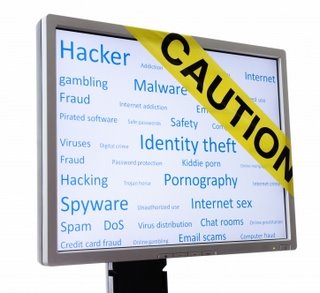
Now that the majority of taxpayers have filed their 2008 Income tax forms, the “phishermen” have a whole new angle to use when trying to gain access to your personal information.
Almost everyone has a fear of being audited. We’ve all heard too many stories about the Internal Revenue Service and how they can punish taxpayers for underpayment of taxes, suspected tax fraud, etc.
So when a letter comes from the IRS, most of us open it with a measure of stress. We know (well, most of us know) we haven’t done anything deliberately to trigger their suspicions – but what if we’ve made a mistake? IRS forms are at best, confusing.
That fear plays right into the hands of the criminals seeking to steal identities and empty bank accounts. Some citizens, worried and anxious to avoid such troubles, respond quickly to any message from the IRS.
The trouble is, those scary messages aren’t from the IRS. They’re from crooks.
A talented hacker can easily duplicate the logos and fonts used in IRS websites – and use them to convince unwary taxpayers that the email they just received really did come from the IRS. Then they can just as easily create a web site that looks official.
Victims receive an email telling them that information is missing, or there’s something they need to clarify. The message might be a “friendly offer” to get something corrected and thus avoid an audit. They might be asked to respond directly to the e-mail, or to click a link to go to the “IRS website.” Once on the fake site, you’ll be asked to verify your identity by entering in personal information – information that will give the crooks all they need to assume your identity.
From there it’s a short step for them to run up your credit card accounts, open new accounts in your name, use your identity to get a job or rent a house, and even empty your bank accounts.
Don’t ever respond to this kind of message – because it did not come from the IRS. In fact, the IRS does not use e-mail to contact taxpayers. If they want to communicate with you, they’ll send a letter by postal mail.
Instead, if you receive such a message, forward it to phishing@irs.gov – so that they can work to track down the crooks and put them out of business. If you have a tax question, go directly to the IRS site at www.irs.gov.
If you have already responded to a message, thinking it was from the IRS, you should contact all 3 credit bureaus immediately and alert them to the fact that you’ve had your identity stolen. Next, contact all your credit card issuers and your banks and alert them.
Get a copy of your current credit report and see if the crooks have already started work. If they have, begin immediately to repair the damage.



